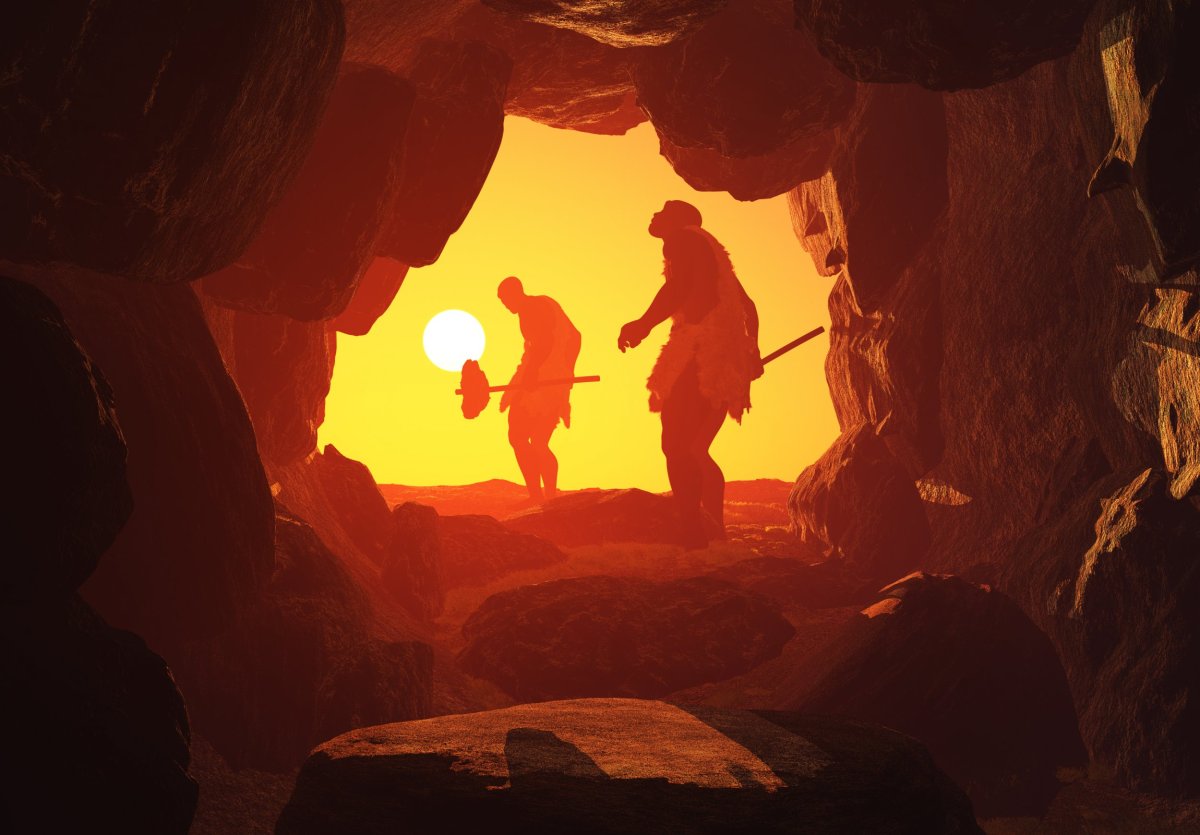Researchers probing the stalagmites of Romania think cold weather may have contributed to the the extinction of our closest human cousins—the Neanderthals.
Evidence suggests that Europe underwent extremely cold and dry intervals that may have put a strain on the archaic humans' food sources, researchers reported in the journal Proceedings of the Natural Academy of Sciences.
"The Neanderthals were the human species closest to ours and lived in Eurasia for some 350,000 years. However, around 40,000 years ago—during the last Ice Age and shortly after the arrival of anatomically modern humans in Europe—they became extinct," study author Vasile Ersek of Northumbria University explained in a statement.
His team used stalagmites—rocks that accumulate in caves over many thousands of years—to track the history of the region's climate. Like the rings inside a tree trunk, layers within stalagmites can unlock the secrets of the past.
The Romanian rocks revealed extreme conditions in Europe between 44,000 and 40,000 years ago. Temperatures appeared to slowly drop to incredibly cool levels, before suddenly increasing. The timing of these cold cycles matched up with archaeological evidence of Neanderthal activity—lower temperatures meant fewer tools.
"For many years we have wondered what could have caused their demise. Were they pushed 'over the edge' by the arrival of modern humans, or were other factors involved?" Ersek said. "Our study suggests that climate change may have had an important role in the Neanderthal extinction."
The team suspect a diet heavy in meat made Neanderthals particularly vulnerable to these extreme climate cycles. Cold temperatures may have put a strain on the supply of animals the early humans hunted. Researchers think anatomically modern humans (Homo sapiens) survived these cold snaps with a varied diet of fish and plants as well as meat.

"When temperatures warmed again, [smaller Neanderthal] populations could not expand as their habitat was also being occupied by modern humans," Ersek added. "This facilitated a staggered expansion of modern humans into Europe."
Neanderthal populations waned as these millenia-scale cycles repeated, the research team think. Modern humans, on the other hand, spread across the continent.
The mysterious demise of Neanderthals continues to puzzle scientists as they learn more about our ancient cousins. Recent studies have shown they wielded their own fire, created sophisticated cave art and even got cosy with other archaic humans.
Uncommon Knowledge
Newsweek is committed to challenging conventional wisdom and finding connections in the search for common ground.
Newsweek is committed to challenging conventional wisdom and finding connections in the search for common ground.
About the writer
Katherine Hignett is a reporter based in London. She currently covers current affairs, health and science. Prior to joining Newsweek ... Read more
To read how Newsweek uses AI as a newsroom tool, Click here.








